Olive green and army green may seem like similar colors – after all, they both have the word “green” in their name. But there are actually distinct differences between these two hues that make them significantly unique.
Read on to learn more about olive green vs army green— including how to tell them apart, when you should choose one over the other, and why it matters.
Is Olive Green Same As Army Green?
No, olive green is not the same as army green. While both colors fall within the green spectrum, they have distinct differences. Olive green has a yellow or khaki undertone, while army green is darker with a gray or brown undertone. These variations result in differences in appearance and overall aesthetic.
What Color Is Olive Green?
Olive green is a unique and versatile color within the green spectrum, characterized by its earthy tones and hints of gray and yellow.
Uses of Olive Green
Some common uses of olive green include:
Fashion
Olive green is popular in clothing, accessories, and footwear. It is often used in military-inspired fashion, casual wear, and outdoor gear due to its association with utility and a rugged aesthetic. It can be seen in jackets, pants, shirts, and even footwear.
Interior Design
Olive green is a sought-after color in interior design. It adds a calming and earthy touch to spaces. Olive green can be incorporated into walls, furniture, upholstery, and decorative elements, bringing a sense of nature and tranquility to the surroundings.
It is also mixed with other colors to create unique tones. For instance, if you are interested in how to make blonde paint, you can start with a base of pale yellow paint and gradually add small amounts of light brown, but add olive green for depthness.
Nature-Inspired Themes
Olive green is frequently used in themes that draw inspiration from the natural world. It represents foliage, forests, and the outdoors. It can be found in artwork, landscapes, and even event decorations, creating a harmonious and organic ambiance.
If you wish to try any applications, you may be interested to know how to make olive green acrylic paint in different shades.
Complementary Colors to Olive Green
Dark Green
Dark green color shares similar earthy and natural qualities. When paired together, these shades of green create depth and richness. Dark green can be used as an accent color or in combination with olive green to enhance the overall color scheme.
Khaki
Khaki is another complementary color that works well with olive green. Khaki shares the warm undertones of olive green, creating a cohesive and harmonious combination. Combining khaki and olive green often evokes a sense of ruggedness, military-inspired themes, and a vintage aesthetic.
Brown
Brown reinforces the earthy tones and can add warmth and depth to the overall color palette. Brown can be used as a neutral backdrop or in furniture and accessories, creating a cozy and grounded atmosphere when combined with olive green.
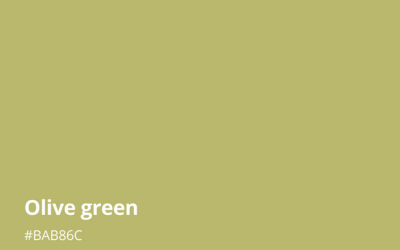
What Color Is Army Green?
Army green is a specific shade of green commonly associated with military uniforms and equipment. It can also refer to dark green shades, such as forest Green or Hunter Green.
Check out the difference between hunter green and forest green colors.
Uses of Army Green
Here are some notable uses of army green:
Military Uniforms
Army green is used extensively in military uniforms across different branches of the armed forces worldwide. Its purpose is to provide effective camouflage in outdoor environments, helping soldiers blend with natural surroundings and remain less visible to potential threats.
Fashion and Clothing
The rugged and utilitarian aesthetic associated with army green has influenced fashion trends. It can be found in clothing items like cargo pants, utility jackets, and military-inspired garments. The color’s association with strength and resilience often appeals to those seeking a functional and edgy style.
Outdoor Gear
Army green is commonly utilized in outdoor gear, such as backpacks, tents, and camping equipment. Its muted tone allows the gear to blend with natural environments while providing durability and functionality for outdoor activities.
Home Decor
Army green has found its way into interior design and home decor, particularly in spaces seeking a touch of military or industrial style. It can be used in paint colors, furniture, and decorative accents to create a rugged, masculine, or vintage-inspired ambiance.
Complementary Colors to Army Green
When selecting complementary colors for army green, it’s essential to consider its neutral and earthy undertones. Here are some colors that work well with army green:
Beige and Tan
Beige or tan shades complement army green’s neutral undertones, creating a harmonious and cohesive color scheme. These colors enhance the earthy and natural aesthetic associated with army green.
Cream and Off-White
Cream and off-white hues provide a subtle contrast to army green while maintaining a balanced and complementary palette. These lighter shades add a touch of brightness and elegance to the overall composition.
Deep Brown
Deep brown is an excellent complementary color for army green. It adds richness and depth to the color scheme while accentuating the earthy and rugged characteristics of army green.
Dark Gray
Dark gray works well with army green, particularly when aiming for a more industrial or urban aesthetic. The combination creates a modern and sophisticated look, allowing the army green to stand out while maintaining a cohesive balance.

The Differences: Olive Green Vs Army Green
Green is a versatile color, and within its spectrum, army green and olive green stand out as distinct shades. While they share similarities, such as being earthy tones, there are key differences that set them apart:
i. Hue and Undertone
Army Green: Army green is a darker shade of green with a slight gray or brown undertone. It resembles the color commonly associated with military uniforms.
Olive Green: Olive green is a lighter shade of green with a yellow or khaki undertone. It is reminiscent of the color of olives or the green found in natural landscapes.
ii. Origin and Historical Context
Army Green: The term “army green” is derived from the color used in the United States army uniforms and equipment, particularly in the past. It has been a standard color associated with military forces worldwide.
Olive Green: Olive green gets its name from the color of olives and is also often linked to military use. It was initially used for military uniforms and became popular during Second World War.
iii. Color Intensity
Army Green: Army green tends to be a deeper and darker shade of green. It has a more intense, saturated color, often appearing darker under certain lighting conditions.
Olive Green: Olive green is a lighter shade of green, usually less intense and vibrant compared to army green. It has a more subdued and earthy appearance.
iv. Undertone Comparison
Army Green: Army green has a gray or brown undertone, which gives it a cooler and more neutral appearance. This undertone helps it blend well with other neutral colors.
Olive Green: Olive green has a yellow or khaki undertone, which provides it with a warmer and earthier feel. This undertone makes it suitable for pairing with other warm-toned colors.
v. Fashion and Design
Army Green: Army green is often associated with military-inspired fashion and utilitarian designs. It is commonly used in clothing, accessories, and outdoor gear, giving a rugged and functional aesthetic because of high versatility.
Olive Green: Olive green has slightly versatile quality that makes it popular in various fashion styles. It can be found in casual wear, military-inspired fashion, and even in interior design elements like paint colors and furniture.
vi. Popularity and Cultural Perception
Army Green: Army green is frequently associated with strength, resilience, and military culture. It represents a sense of discipline, authority, and patriotism.
Olive Green: Olive green is often connected to nature, tranquility, and a vintage or retro aesthetic. It carries a more laid-back and peaceful connotation compared to army green.
| Army Green | Olive Green |
| A darker green and more muted shade | Light green/ Bit darker |
| Has a slightly yellowish tint. | Looks an actual green colour |
| More versatile | Less versatile |
| Ideal for camouflage | Neutral color |
| More Professional-looking | Fond in nature with a natural feel |
| Sometimes shouting | Subtle and less loud |
Do Olive Green and Army Green Match?
Yes, olive green and army green can match well together. Since both shades fall within the green spectrum, they share a common foundation. Their compatibility is further enhanced by their earthy and natural qualities.
When paired intentionally and balanced with complementary colors, they can create a cohesive and visually appealing color scheme.
Do olive green and sage green match?
The colors Olive green and sage green indeed match beautifully. The earthy and natural tones of both colors create a harmonious and soothing combination.
The subtle gray undertones of sage green complement the warm brown or yellow undertones of olive green, resulting in a cohesive and balanced color palette.
FAQs
Is olive green warm or cool?
Olive green is considered a warm color. It has a yellow or khaki undertone, which gives it a warmer and earthier feel. This warm undertone makes olive green suitable for pairing with other warm-toned colors and creates a cozy and inviting atmosphere.
Who wears the olive green and army green uniform?
The army’s green and olive green uniforms are typically worn by military personnel in various branches of the armed forces. These uniforms are designed to provide camouflage in outdoor environments and blend with natural surroundings. Army personnel, including soldiers, officers, and other military ranks, wear uniforms in shades of green for their functional and symbolic significance.
Why is army uniform color green?
The color green is used in army uniforms for several reasons. Firstly, green provides effective camouflage in natural environments, particularly in wooded or forested areas. The shade of green used in uniforms helps soldiers blend in with their surroundings, making them less visible to enemies.
Who can wear olive green color?
Olive green is a versatile color that can be worn by anyone, regardless of gender or age. It complements various skin tones and can be incorporated into different fashion styles. Dark olive green is often used in casual wear, military-inspired fashion, and even in accessories and home decor. Individuals who appreciate earthy tones and a vintage or retro aesthetic may particularly enjoy incorporating this dark shade into their wardrobe or surroundings.
Is military green the same as olive drab green ?
Military green and olive drab green are similar but not exactly the same. Military green is a broad term that encompasses various shades of green used in military applications. It can include colors ranging from lighter greens to darker greens, depending on the specific context.
Is OD green same color as ranger green?
OD green and ranger green are different shades of green used in military contexts. OD green, short for “olive drab green,” refers to the medium to dark green color with a brown or gray undertone, as mentioned earlier.
Is sage green the same as mint green?
When comparing mint vs sage, they are distinct shades. Sage green is a muted, grayish-green with a hint of blue, while mint green is a brighter, cooler pastel green. They have different undertones and aesthetics, making them visually unique within the green color spectrum.
Conclusion
Whether you want a classic look with Army Green or muted elegance with Olive Green, there are options available to fit both personal style and economical bodies.
Regardless of the finishing touches completed in each hue, the result will be an overall refined aesthetic that you can be proud of. If you already have a favorite shade in mind or need a little inspiration to choose between olive green vs army green, utilize color swatch cards, support platforms such as Pinterest, color blogs and online stores to notice how the color works in various applications.

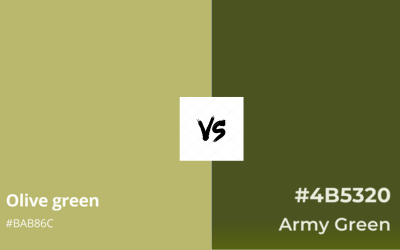
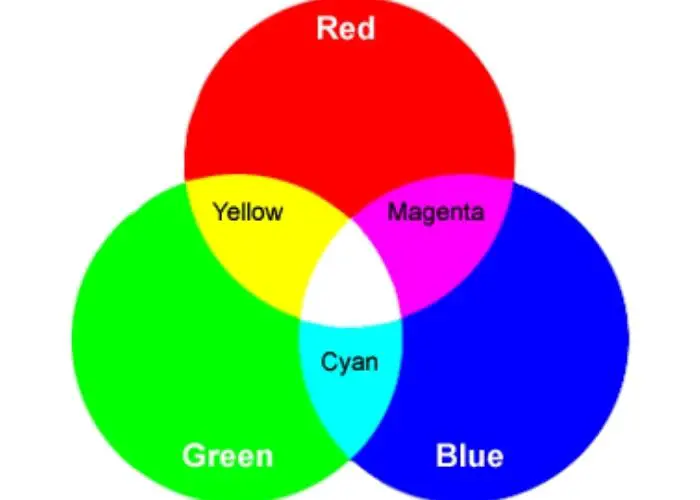
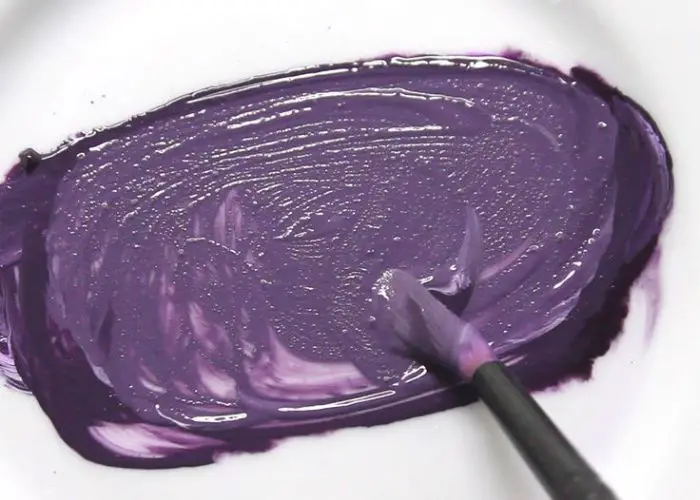

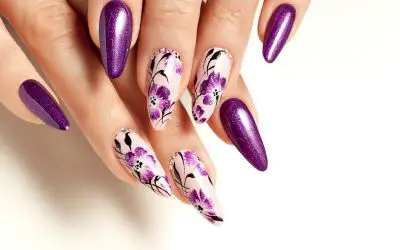



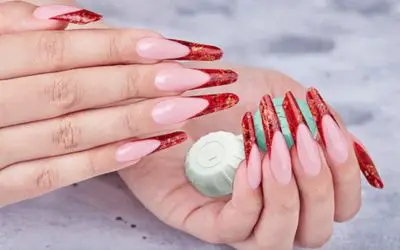

Leave a Reply